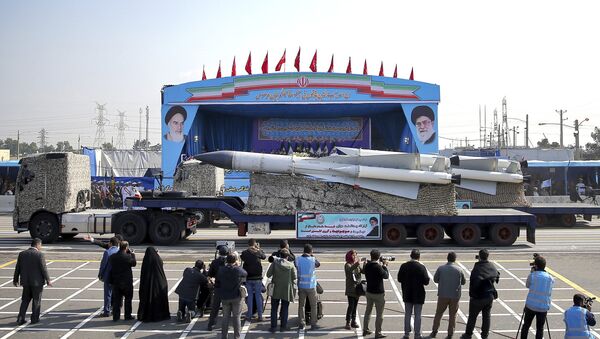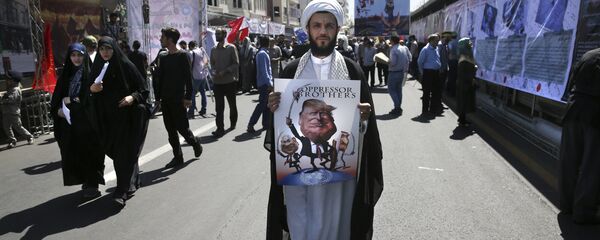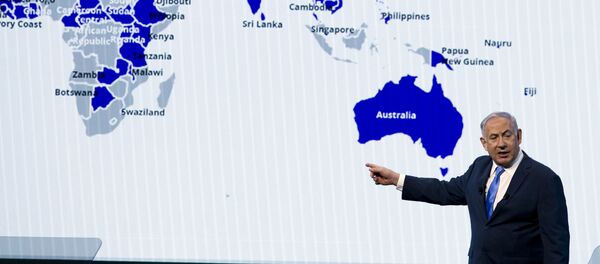Iran is ready to repel any attack, but it will come at a price for Tehran, Mojtaba Jelalzadeh, an international policy specialist at the Tehran-based Islamic Azad University, told Sputnik Persian.
On 13 January the Wall Street Journal broke that the John Bolton-led National Security Council (NSC) had requested that the Pentagon outline options for a potential strike on Iran back in 2018, in response to September attacks on the US Embassy in Iraq, launched by a military group allegedly aligned with Tehran.
"Being an independent, stable and military state, the Islamic Republic of Iran (IRI) has its own defence potential. Iran has worked out a defence plan and strategy. It is completely wrong to say that Iran will not be able to resist the alleged attack. However, it is similarly erroneous to believe that Tehran will achieve an easy victory", Jelalzadeh emphasised.
According to Jelalzadeh, one should bear in mind that, first, there will be no short-term strike without an appropriate response from the IRI; if a military conflict starts, it will be a long-term one and it will not end quickly. Second, Iranian politicians and Islamic Revolutionary Guard Corps (IRGC) officials have repeatedly warned that the potential conflict would engulf many other regional states in the Middle East, he underscored.
According to some estimates, currently the number of Iranian regular troops amounts to between 540,000 and 900,000. The ambiguity surrounding the numerical strength is explained by the almost absolute secrecy of the information concerning the country's armed forces in Iran.
Commenting on the White House's request to the Pentagon, Jelalzadeh singled out National Security Adviser John Bolton, known for his hawkish stance towards the IRI and support for the Mojahedin-e Khalq (MEK), which is designated as a terrorist organisation in Iran.
On 26 March 2015, The New York Times published Bolton's op-ed, eloquently titled To Stop Iran's Bomb, Bomb Iran. Later, on 1 July 2017, Bolton vowed to "change the regime" in Iran at an MEK gathering.
"While analysing this request, we must consider the prerequisites and the role of some individuals in determining the US foreign policy", Jelalzadeh noted, stressing that the Trump administration had adopted a one-sided approach toward Tehran.
"According to the [American] ruling elite, the United States welcomes military action in countries that are not their allies", he said. "But in practice, questions arise as to whether they are capable of taking these actions? Will their actions be supported both domestically and internationally? For how long can the US wage the [potential] war? Naturally, a military attack against Iran, a stable state, will be not to naught in the Middle Eastern troublesome region".
The Wall Street Journal cited former US administration officials who said that they had been shocked by the White House's request. The media outlet specified that it was not clear whether any proposals had been provided to the president's national security team by the Pentagon or whether Donald Trump knew about the request.
For his part, Garret Marquis, an NSC spokesman, neither confirmed nor denied the media outlet's report, saying that the council "coordinates policy and provides the president with options to anticipate and respond to a variety of threats".
The views and opinions expressed by the speaker do not necessarily reflect those of Sputnik.





